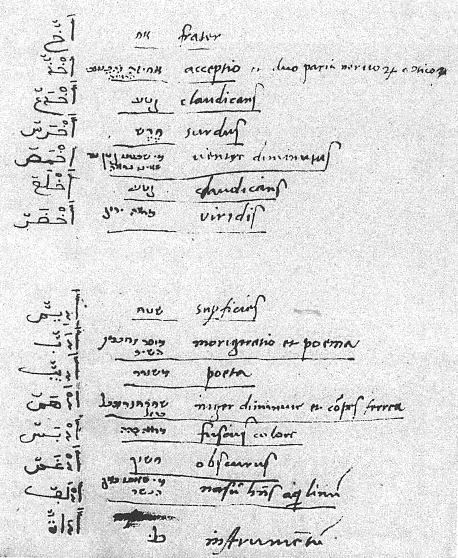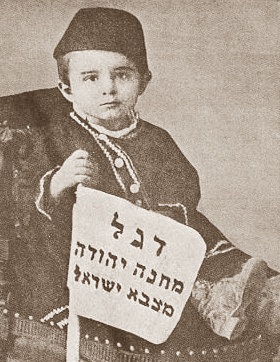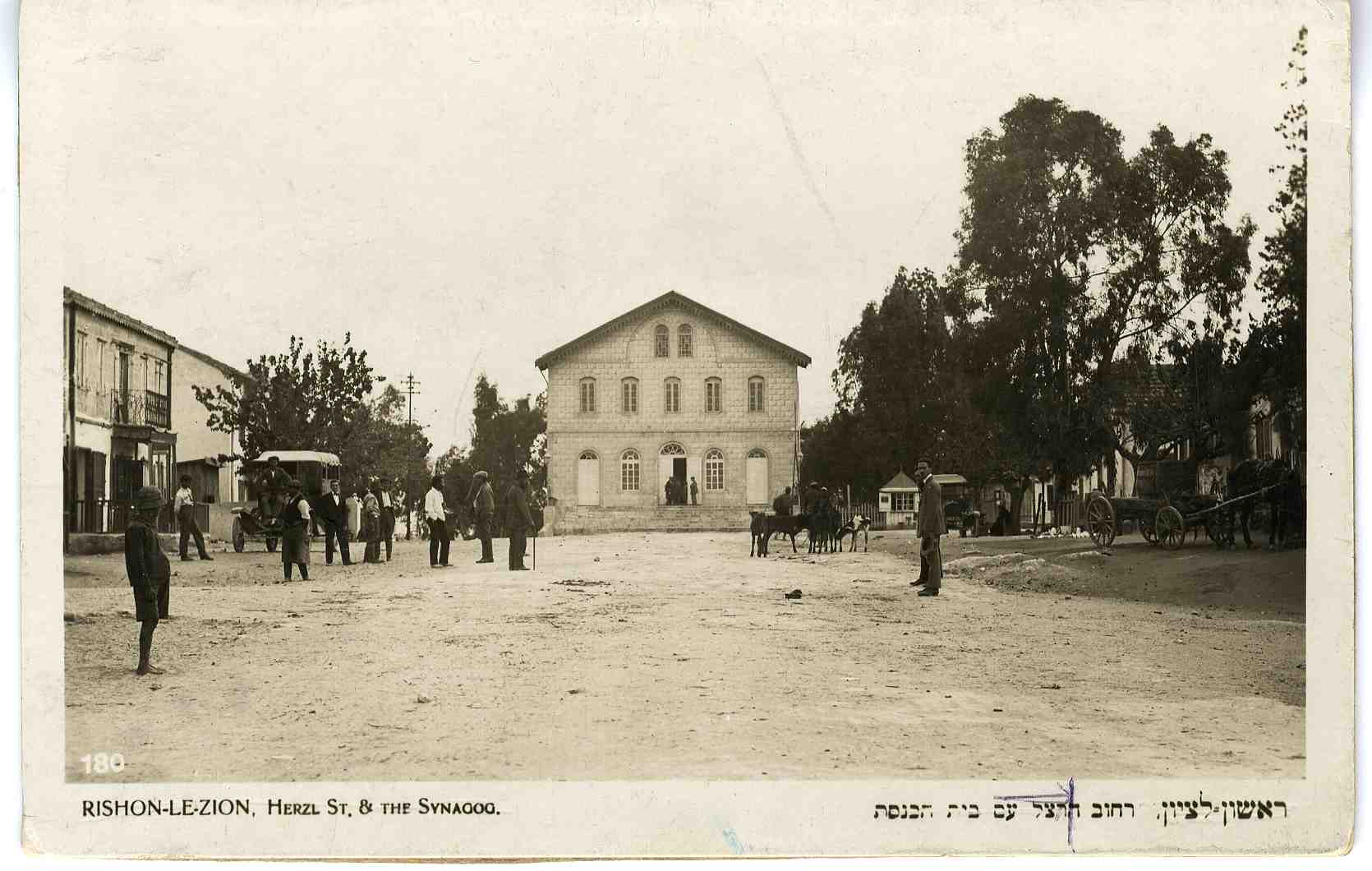|
HaZvi
''HaZvi'' (, also ''Hatzevi'', literally 'The Gazelle') was a Hebrew-language newspaper published in Jerusalem from 1884 to 1914 by Eliezer Ben-Yehuda, a pioneer of the revival of Hebrew as a spoken tongue. History The first issue of ''HaZvi'' was published on October 24, 1884. It began as a weekly paper and eventually developed into a daily. In 1909, the paper had a peak circulation of 1,200 copies, 500 distributed in Jerusalem. ''HaZvi'' revolutionized Hebrew newspaper publishing in Jerusalem by introducing secular issues and techniques of modern journalism, especially after Itamar Ben-Avi, Ben-Yehuda's son, joined the paper. Influenced by the French press, Ben-Avi brought in sensational headlines and a style of reporting that differed from newspapers of the old school. ''HaZvi '' became the organ of the New Yishuv (pre-state Jewish community), as the first Jewish agricultural colonies were founded. The paper included translations of French literature (previously only German li ... [...More Info...] [...Related Items...] OR: [Wikipedia] [Google] [Baidu] |
Revival Of The Hebrew Language
The revival of the Hebrew language took place in Europe and Palestine toward the end of the 19th century and into the 20th century, through which the language's usage changed from the sacred language of Judaism to a spoken and written language used for daily life in Israel. The process began as Jews from diverse regions started arriving and establishing themselves alongside the pre-existing Jewish community in the region of Palestine in the first half of the twentieth century, when veteran Jews in Palestine (largely Arabic-speaking by that time) and the linguistically diverse newly arrived Jews all switched to use Hebrew as a lingua franca, the historical linguistic common denominator of all the Jewish groups. At the same time, a parallel development in Europe changed Hebrew from primarily a sacred liturgical language into a literary language, which played a key role in the development of nationalist educational programs. Modern Hebrew was one of three official languages of ... [...More Info...] [...Related Items...] OR: [Wikipedia] [Google] [Baidu] |
Eliezer Ben-Yehuda
Eliezer Ben‑Yehuda ( he, אֱלִיעֶזֶר בֵּן־יְהוּדָה}; ; born Eliezer Yitzhak Perlman, 7 January 1858 – 16 December 1922) was a Russian–Jewish linguist, grammarian, and journalist, renowned as the lexicographer of the first Hebrew dictionary, and the editor of ''HaZvi'', one of the first Hebrew newspapers published in the Land of Israel/ Palestine. He was the main driving force behind the revival of the Hebrew language. Biography Eliezer Yitzhak Perlman (later Eliezer Ben-Yehuda) was born in Luzhki ( be, Лужкі (''Lužki''), Vilna Governorate of the Russian Empire (now Vitebsk Oblast, Belarus) to Yehuda Leib and Tzipora Perlman, who were Chabad ''hasidim''. He attended a Jewish elementary school (a "cheder") where he studied Hebrew and the Bible from the age of three, as was customary among the Jews of Eastern Europe. By the age of twelve, he had read large portions of the Torah, Mishna, and Talmud. His mother and uncle hoped he would become ... [...More Info...] [...Related Items...] OR: [Wikipedia] [Google] [Baidu] |
Itamar Ben-Avi
Itamar Ben-Avi (; []; 31 July 1882 – 8 April 1943) was the first native speaker of modern Hebrew, Hebrew in modern times. He was a journalist and Zionism, Zionist activist. Biography Itamar Ben-Avi was born as Ben-Zion Ben-Yehuda in Jerusalem on 31 July 1882, the son of Devora () and Eliezer Ben-Yehuda. Eliezer is credited with reviving the Hebrew language; Itamar was brought up to be the first native speaker of Hebrew in the modern era. At his father's insistence, Itamar was not permitted to hear any language other than Hebrew at home. When he was very young, Itamar always wanted someone to play with, but his parents did not want him to speak with the other children who spoke different languages. He made friends with a dog which he called ''Ma'her'' (), meaning "fast" in Hebrew. His three siblings died in a diphtheria epidemic and his mother died of tuberculosis in 1891. He and his family were ostracized from the ultra-orthodox community, due to their usage of Hebrew as a day ... [...More Info...] [...Related Items...] OR: [Wikipedia] [Google] [Baidu] |
Jewish Homeland
A homeland for the Jewish people is an idea rooted in Jewish history, religion, and culture. The Jewish aspiration to return to Zion, generally associated with divine redemption, has suffused Jewish religious thought since the destruction of the First Temple and the Babylonian exile. History In the early 19th century, the Napoleonic Wars led to the idea of Jewish emancipation. In the late 19th century, Theodor Herzl, who saw contemporary antisemitism as a reaction to Jewish emancipation, set out his vision of the restoration of a Jewish state and sovereign homeland for the Jewish nation in his book ''Der Judenstaat''. Herzl was later hailed by the Zionist political parties as the founding father of the State of Israel. Although persecution of Jews was not limited to Europe, the modern movement for the creation of a secular homeland was perceived as a solution to the especially widespread antisemitism within Europe. This became a centerpiece of secular political Zionism. ... [...More Info...] [...Related Items...] OR: [Wikipedia] [Google] [Baidu] |
1884 Establishments In The Ottoman Empire
Events January–March * January 4 – The Fabian Society is founded in London. * January 5 – Gilbert and Sullivan's ''Princess Ida'' premières at the Savoy Theatre, London. * January 18 – Dr. William Price attempts to cremate his dead baby son, Iesu Grist, in Wales. Later tried and acquitted on the grounds that cremation is not contrary to English law, he is thus able to carry out the ceremony (the first in the United Kingdom in modern times) on March 14, setting a legal precedent. * February 1 – ''A New English Dictionary on historical principles, part 1'' (edited by James A. H. Murray), the first fascicle of what will become ''The Oxford English Dictionary'', is published in England. * February 5 – Derby County Football Club is founded in England. * March 13 – The siege of Khartoum, Sudan, begins (ends on January 26, 1885). * March 28 – Prince Leopold, the youngest son and the eighth child of Queen Victoria and Prince A ... [...More Info...] [...Related Items...] OR: [Wikipedia] [Google] [Baidu] |
Publications Established In 1884
To publish is to make content available to the general public.Berne Convention, article 3(3) URL last accessed 2010-05-10.Universal Copyright Convention, Geneva text (1952), article VI . URL last accessed 2010-05-10. While specific use of the term may vary among countries, it is usually applied to text, images, or other audio-visual content, including paper ( |
Yishuv Newspapers
Yishuv ( he, ישוב, literally "settlement"), Ha-Yishuv ( he, הישוב, ''the Yishuv''), or Ha-Yishuv Ha-Ivri ( he, הישוב העברי, ''the Hebrew Yishuv''), is the body of Jewish residents in the Land of Israel (corresponding to the southern part of Ottoman Syria until 1918, OETA South 1917–1920, and Mandatory Palestine 1920–1948) prior to the establishment of the State of Israel in 1948. The term came into use in the 1880s, when there were about 25,000 Jews living across the Land of Israel and continued to be used until 1948, by which time there were some 630,000 Jews there. The term is still in use to denote the pre-1948 Jewish residents in the Land of Israel. A distinction is sometimes drawn between the Old Yishuv and the New Yishuv. The Old Yishuv refers to all the Jews living in the Land of Israel before the first Zionist immigration wave (''aliyah'') of 1882, and to their descendants who kept the old, non-Zionist way of life until 1948. The Old Yishuv reside ... [...More Info...] [...Related Items...] OR: [Wikipedia] [Google] [Baidu] |
Defunct Newspapers Published In Israel
{{Disambiguation ...
Defunct (no longer in use or active) may refer to: * ''Defunct'' (video game), 2014 * Zombie process or defunct process, in Unix-like operating systems See also * * :Former entities * End-of-life product * Obsolescence Obsolescence is the state of being which occurs when an object, service, or practice is no longer maintained or required even though it may still be in good working order. It usually happens when something that is more efficient or less risky r ... [...More Info...] [...Related Items...] OR: [Wikipedia] [Google] [Baidu] |
Jewish Printing And Publishing
Jews ( he, יְהוּדִים, , ) or Jewish people are an ethnoreligious group and nation originating from the Israelites Israelite origins and kingdom: "The first act in the long drama of Jewish history is the age of the Israelites""The people of the Kingdom of Israel and the ethnic and religious group known as the Jewish people that descended from them have been subjected to a number of forced migrations in their history" and Hebrews of historical Israel and Judah. Jewish ethnicity, nationhood, and religion are strongly interrelated, "Historically, the religious and ethnic dimensions of Jewish identity have been closely interwoven. In fact, so closely bound are they, that the traditional Jewish lexicon hardly distinguishes between the two concepts. Jewish religious practice, by definition, was observed exclusively by the Jewish people, and notions of Jewish peoplehood, nation, and community were suffused with faith in the Jewish God, the practice of Jewish (religious) ... [...More Info...] [...Related Items...] OR: [Wikipedia] [Google] [Baidu] |
Hebrew-language Newspapers
Hebrew (; ; ) is a Northwest Semitic language of the Afroasiatic language family. Historically, it is one of the spoken languages of the Israelites and their longest-surviving descendants, the Jews and Samaritans. It was largely preserved throughout history as the main liturgical language of Judaism (since the Second Temple period) and Samaritanism. Hebrew is the only Canaanite language still spoken today, and serves as the only truly successful example of a dead language that has been revived. It is also one of only two Northwest Semitic languages still in use, with the other being Aramaic. The earliest examples of written Paleo-Hebrew date back to the 10th century BCE. Nearly all of the Hebrew Bible is written in Biblical Hebrew, with much of its present form in the dialect that scholars believe flourished around the 6th century BCE, during the time of the Babylonian captivity. For this reason, Hebrew has been referred to by Jews as ''Lashon Hakodesh'' (, ) since ancient t ... [...More Info...] [...Related Items...] OR: [Wikipedia] [Google] [Baidu] |
Jewish Newspapers
Jews ( he, יְהוּדִים, , ) or Jewish people are an ethnoreligious group and nation originating from the Israelites Israelite origins and kingdom: "The first act in the long drama of Jewish history is the age of the Israelites""The people of the Kingdom of Israel and the ethnic and religious group known as the Jewish people that descended from them have been subjected to a number of forced migrations in their history" and Hebrews of historical Israel and Judah. Jewish ethnicity, nationhood, and religion are strongly interrelated, "Historically, the religious and ethnic dimensions of Jewish identity have been closely interwoven. In fact, so closely bound are they, that the traditional Jewish lexicon hardly distinguishes between the two concepts. Jewish religious practice, by definition, was observed exclusively by the Jewish people, and notions of Jewish peoplehood, nation, and community were suffused with faith in the Jewish God, the practice of Jewish (religious) la ... [...More Info...] [...Related Items...] OR: [Wikipedia] [Google] [Baidu] |
Historical Jewish Press
Historical Jewish Press is an online archive of historical newspapers written and published by Jews. The database enables, through digitization, virtual access to the Hebrew press in most of its years of existence, starting from mid 19th Century to mid 20th Century, along with the Jewish press in Yiddish, Judeo-Arabic, English language, English, French language, French, Judaeo-Spanish, Ladino, Polish language, Polish, Russian language, Russian, Romanian language, Romanian, Spanish language, Spanish, Portuguese language, Portuguese, Hungarian language, Hungarian and more. The site is a project of the Tel Aviv University and the National Library of Israel. External linksHistorical Jewish Press website National Library of Israel Israeli digital libraries Jewish newspapers Mass digitization {{Judaic-studies-stub ... [...More Info...] [...Related Items...] OR: [Wikipedia] [Google] [Baidu] |


.jpg)





